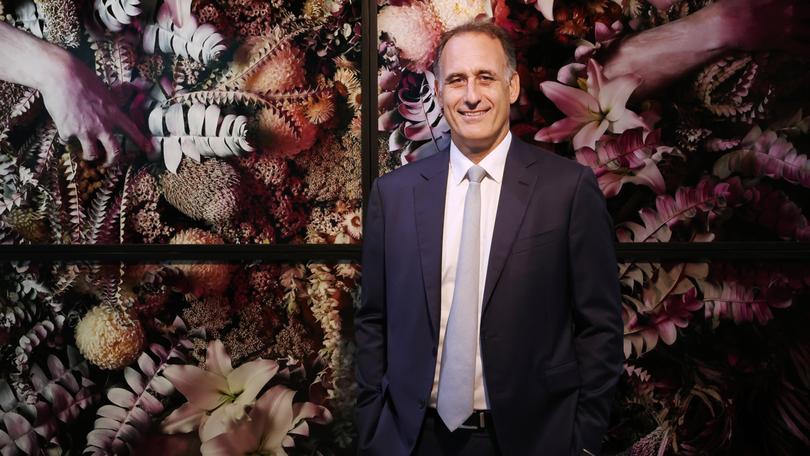Wesfarmers eyes further growth through strong balance sheet, expanded product ranges and new categories
Kmart and Bunnings are among the key Wesfarmers businesses to outline growth plans as a key company official announces his retirement.

Wesfarmers chief executive Rob Scott says the conglomerate is able to deliver further strong growth, notably through a strong balance sheet.
In comments to investors and analysts on Thursday, Mr Scott said the success of Wesfarmers — which operates Kmart, Bunnings, Officeworks, Priceline and industrial businesses including a lithium mine joint venture — was in part attributable to satisfying changing customer needs and operating excellence, through low-cost and scaleable operating models.
The company also announced on Thursday that chemicals, energy and fertilisers chief Ian Hansen would retire in November, to be replaced by the division’s chief operating officer, Aaron Hood.
Sign up to The Nightly's newsletters.
Get the first look at the digital newspaper, curated daily stories and breaking headlines delivered to your inbox.
By continuing you agree to our Terms and Privacy Policy.“I look forward to working with Aaron in what is an exciting time for WesCEF, with a range of major opportunities in the well-established chemicals, energy and fertiliser businesses, and the continued ramp-up of the Covalent lithium project,” Mr Scott said.
Mr Hansen, who started with CSBP in 1983, would leave with a track record of “consistent operational excellence”, Mr Scott said.
In its market-leading retail businesses, Wesfarmers is eyeing growth into new and expanding categories, ranges and models and markets, as well as ongoing decarbonisation for WesCEF and additional loyalty and rewards benefits.
“Our long term perspective strong financial discipline and active portfolio management allow us to deploy capital to businesses that can drive better returns in the future,” Mr Scott said.
“I see this as a source of competitive advantage for Wesfarmers and one of the reasons why our model is so fit for purpose in the current market, where investment prospects of businesses and industries are changing rapidly. For this reason, I believe that Wesfarmers has one of the most resilient and adaptive operating models in the ASX.”
Potentially higher-for-longer inflation would not change the way Wesfarmers thought about its businesses or strategies, he said.
“It just means that we need to keep doubling down on the really strong value credentials, making sure that we have an offer that is going to resonate with more value focused customers,” Mr Scott said.
Bunnings has recently stepped up its cleaning products range and expanded into pet care, while Kmart has enjoyed enormous growth through the popularity of its Anko own label, which comprises about 85 per cent of a Kmart store’s stock. Anko is the market leader in home products and pet accessories and is the biggest toy brand in Australia.
Bunnings will expand its smart home range, target commercial, rural and renewables markets and also look into auto care, with the range in each store to reflect local demand.
Kmart sees further growth in apparel, where it has a seven per cent share of the market, in beauty products and in home and living, while it plans to continue scaling up its Anko range globally through new markets and business models.
Mr Scott said Kmart had a deep connection to its customer base, which would stand it in good stead against competition from online retailers.
“If I had a choice between having just a very vanilla marketplace with lots of products and having the brands and the very unique brands that we have within our portfolio, I know what I’d rather be leveraging,” he said.
Kmart Group chief executive Ian Bailey said Anko and Kmart products were frequently one-third of equivalents and were a key growth driver.
“As we see customers trading into our business at this point in time, we have confidence we can retain those customers for the long term, because once you’ve experienced the value that we can provide, it just makes sense that you stick with it, and use your cash to spend on other things, which may be more expensive,” he said.
Bunnings chief executive Mike Schneider said the ongoing trend of Australians staying in their homes longer was driving further renovation activity in areas such as assisted living, while smart homes and automation were a growing market.
Mr Schneider said Bunnings would grow its retail floorspace by about 10 per cent over the next five years, including through new stores, replacements and expansions.
He also pushed back on suggestions Bunnings should be covered by the Food and Grocery Code despite Bunnings selling some similar products to the grocery giants.
“I think it’s fair to say if you walked into a Bunnings, it’s very clear we are not a supermarket,” Mr Schneider said.
“The supermarkets have some crossover categories with us, absolutely they do. That’s great for the consumer. It’s great for competition.”
